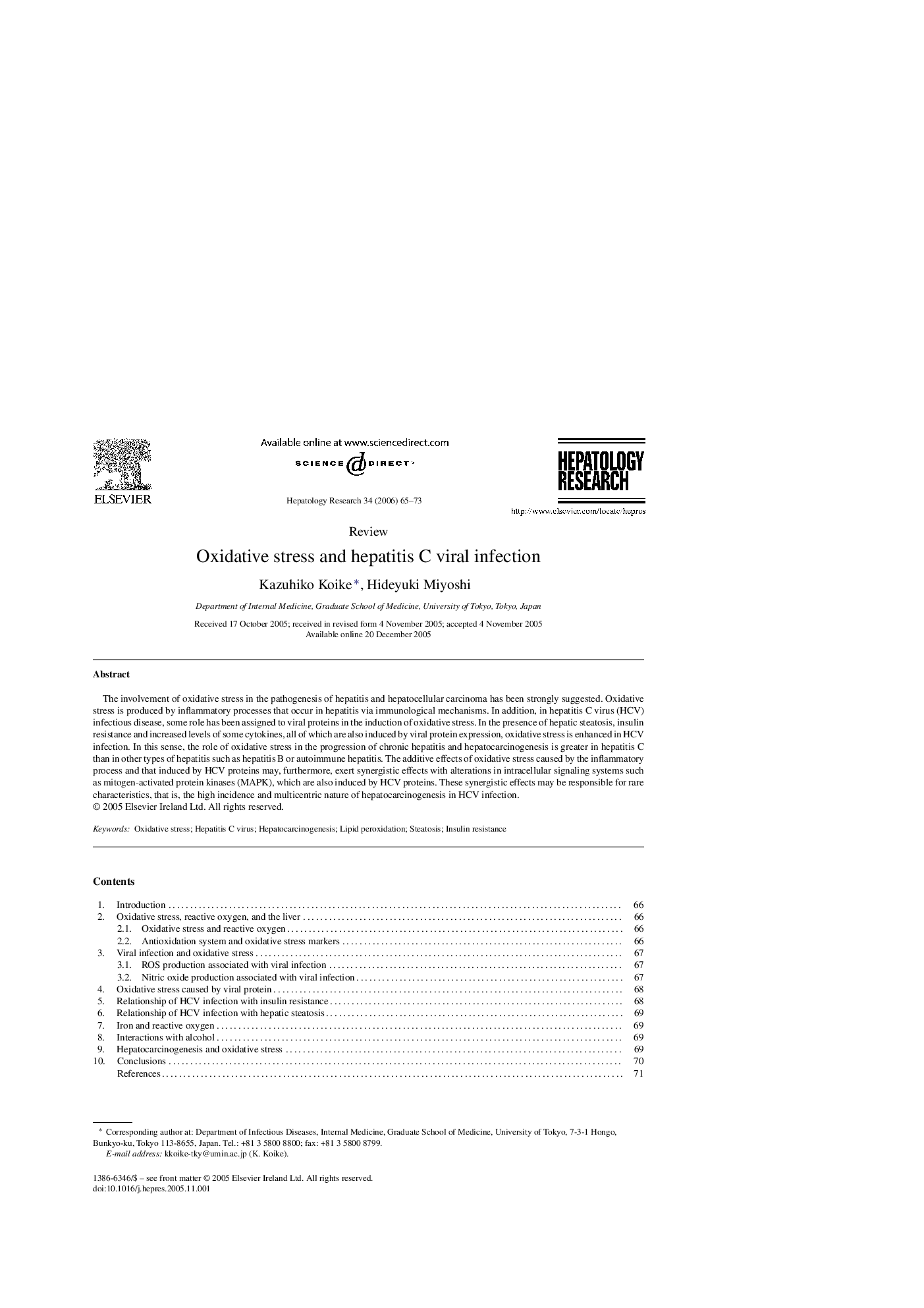| Article ID | Journal | Published Year | Pages | File Type |
|---|---|---|---|---|
| 3311464 | Hepatology Research | 2006 | 9 Pages |
Abstract
The involvement of oxidative stress in the pathogenesis of hepatitis and hepatocellular carcinoma has been strongly suggested. Oxidative stress is produced by inflammatory processes that occur in hepatitis via immunological mechanisms. In addition, in hepatitis C virus (HCV) infectious disease, some role has been assigned to viral proteins in the induction of oxidative stress. In the presence of hepatic steatosis, insulin resistance and increased levels of some cytokines, all of which are also induced by viral protein expression, oxidative stress is enhanced in HCV infection. In this sense, the role of oxidative stress in the progression of chronic hepatitis and hepatocarcinogenesis is greater in hepatitis C than in other types of hepatitis such as hepatitis B or autoimmune hepatitis. The additive effects of oxidative stress caused by the inflammatory process and that induced by HCV proteins may, furthermore, exert synergistic effects with alterations in intracellular signaling systems such as mitogen-activated protein kinases (MAPK), which are also induced by HCV proteins. These synergistic effects may be responsible for rare characteristics, that is, the high incidence and multicentric nature of hepatocarcinogenesis in HCV infection.
Keywords
Related Topics
Health Sciences
Medicine and Dentistry
Gastroenterology
Authors
Kazuhiko Koike, Hideyuki Miyoshi,
